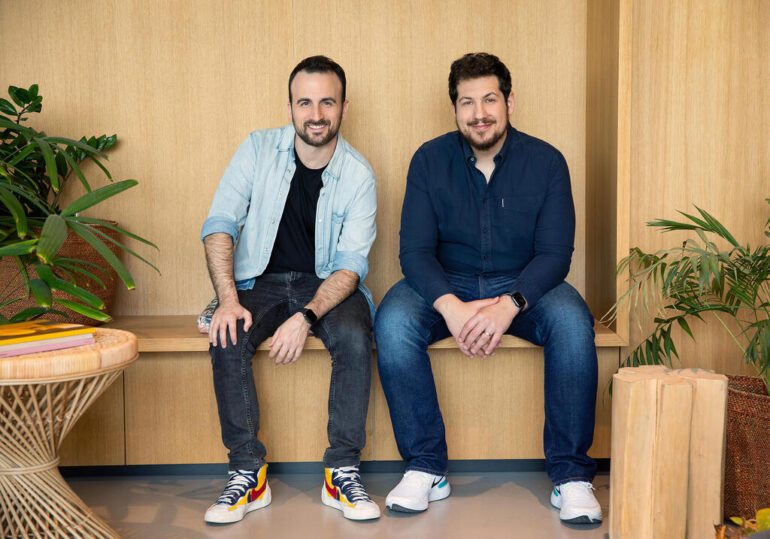- Empathy, a startup focusing on bereavement support, raised $47 million in funding led by Index Ventures.
- Major insurance companies like MassMutual Ventures, MetLife, New York Life, Securian, and Sumitomo participated in the Series B round.
- Empathy shifts from direct sales to a B2B2C approach, catering to employers and insurers, constituting 99% of its business.
- The funding will be used to expand tools and redefine bereavement care.
- Empathy combines AI and human guidance to assist with counseling, financial affairs, and digital account closures.
- The startup, with a focus on the U.S. market, has amassed 5 million employees and 35 million policyholders.
- Despite improvements in mortality rates, logistical challenges in managing affairs post-loss persist, with Empathy offering innovative solutions.
Main AI News:
Navigating the aftermath of loss remains a daunting challenge for many, marked by both emotional turmoil and practical complexities. In response, Empathy, a pioneering startup, has emerged with a mission to ease this burden. With over 40 million users benefiting from its platform, Empathy recently secured a substantial $47 million in funding to expand its services.
Led by Index Ventures, this Series B round saw significant participation from major insurance stalwarts such as MassMutual Ventures, MetLife, New York Life, Securian, and Sumitomo. Empathy’s transition from a direct sales model to a B2B2C approach, where services are delivered through employers or insurers, has proven highly successful, constituting 99% of its business.
The infusion of funds will fuel Empathy’s ongoing efforts to redefine bereavement care, as articulated by CEO Ron Gura. With a blend of AI algorithms and human guidance, Empathy’s platform offers comprehensive support, ranging from counseling services to automated assistance in handling the myriad tasks associated with loss, including financial affairs and the closure of digital accounts.
Looking ahead, Empathy aims to further leverage AI tools to assist individuals in navigating the complexities of post-loss arrangements, offering practical guidance and support at every step of the journey.
This latest funding round brings Empathy’s total raised capital to $90 million. While the company remains tight-lipped about its valuation, insider sources suggest it’s swiftly approaching the $400 million mark.
Founded in Israel, Empathy maintains its R&D hub in the region while focusing its business operations primarily on the U.S. market. With 5 million employees and 35 million policyholders already utilizing Empathy’s services, the startup has made significant inroads in a landscape marked by increasing demand for streamlined bereavement solutions.
Empathy’s emergence coincided with a pivotal moment, launching during the height of the pandemic when mortality rates were at the forefront of public consciousness. The surge in venture funding during this period propelled Empathy’s rapid growth, with two substantial funding rounds totaling $43 million within the first year of its U.S. debut.
Despite improvements in mortality rates, the logistical challenges of managing a deceased individual’s affairs remain significant, with an average of over 420 hours required for the process. Empathy’s innovative approach addresses this pressing need, offering a lifeline to individuals grappling with the practical realities of loss.
For CEO Ron Gura, Empathy’s inception stemmed from personal experience, underscoring the profound impact of loss and the need for empathetic support during such trying times. Drawing on his background as a serial entrepreneur and industry veteran, Gura remains committed to Empathy’s mission of providing compassionate care amid adversity.
While AI technology plays a pivotal role in streamlining Empathy’s services, the human touch remains paramount, ensuring a holistic approach to bereavement support. As Danny Rimer of Index Ventures emphasizes, Empathy’s blend of human empathy and intelligent technology is poised to redefine the landscape of bereavement care, offering solace and support when it’s needed most.
Conclusion:
Empathy’s significant funding infusion and strategic shift towards a B2B2C model underscore the growing demand for innovative bereavement support solutions. With the integration of AI and human guidance, Empathy is poised to redefine the market landscape, offering comprehensive assistance to individuals navigating the complexities of loss. This signifies a paradigm shift towards tech-enabled empathy in the bereavement care sector, with Empathy leading the charge towards more compassionate and efficient support services.

